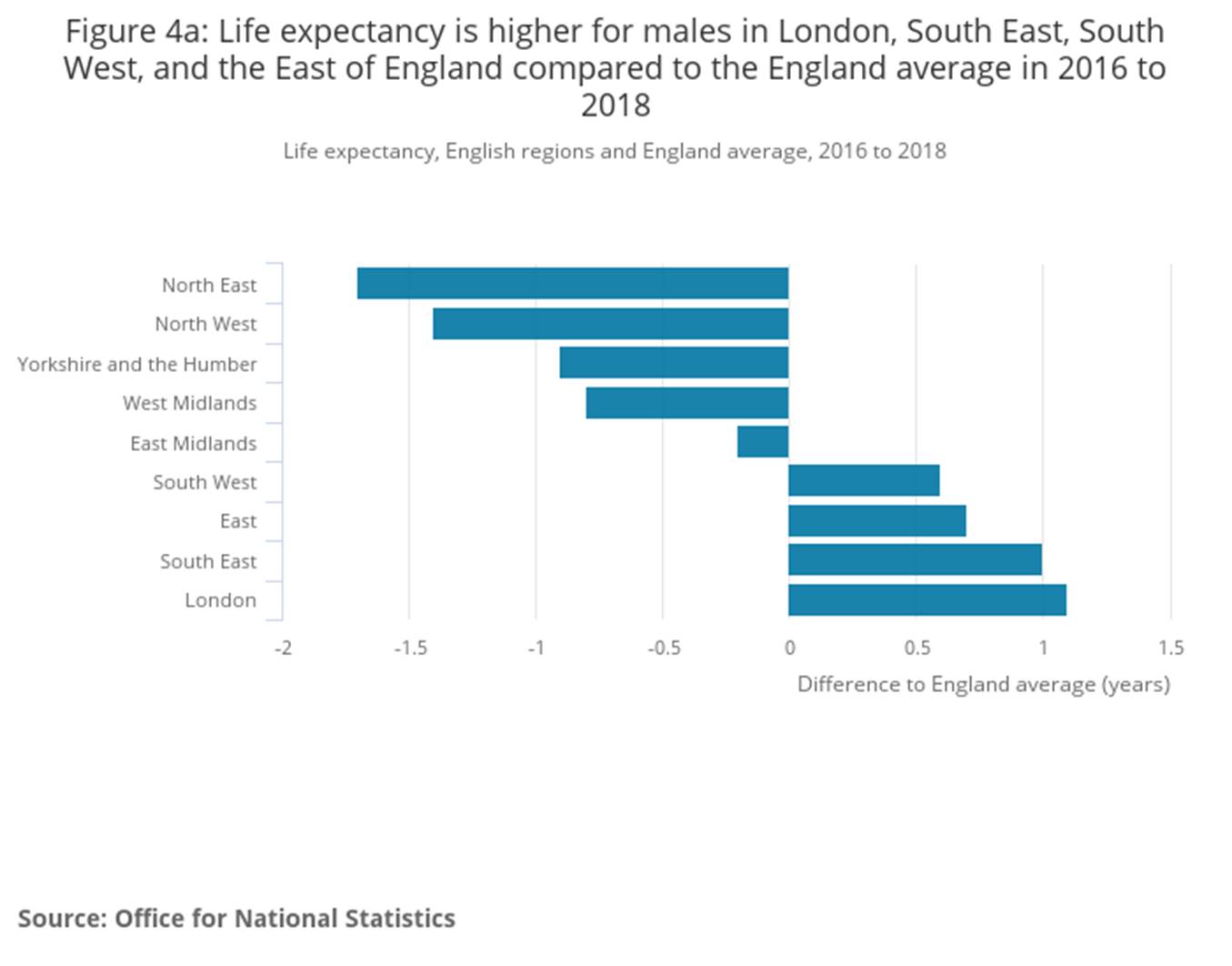· Latest official statistics reveal a significant split in life expectancies between people born in the North of England and those born in the South (https://www.ons.gov.uk/peoplepopulationandcommunity/healthandsocialcare/healthandlifeexpectancies/bulletins/healthstatelifeexpectanciesuk/2016to2018)
· A male born in the North East will, on average, live 1.7 years less than the average life expectancy of 79 years
· A male born in London, on the other hand, will live 1.1 years longer than the average
· The gap in male life expectancy at birth between Westminster (83.9 years) and Blackpool (74.5 years) is a staggering 9.4 years
· Significant longevity improvements have been concentrated in London and the South East in recent years, with some regions experiencing falls in life expectancy
Tom Selby, senior analyst at AJ Bell, comments:
“While Brexit might feel like the great dividing line in the country today, this is likely a symptom of longer-term inequalities that have been allowed to fester for a number of years. Perhaps the starkest example of this inequality is measured by how long we are likely to live.
“There is a clear North-South divide when it comes to life expectancies, with the average male born in the North East expected to live 1.7 years less than the average, compared to a similar male born in London, who can expect to live 1.1 years longer than the average. This North/South divide is replicated for women across the country as well.
“There is a near 10-year chasm between the average life expectancy of a male born in Westminster, one of the wealthiest parts of the country, and Blackpool, one of the most deprived regions in the North West. These vast differences present significant challenges across a wide range of social policy areas, not least retirement income provision and the state pension.
“The current flat-rate state pension system and universal retirement age has the benefit of simplicity, but it also means those with the lowest life expectancies – who tend to live in the poorest areas – will, on average, receive the least.
“Some will argue this is fair given higher earners will, on average, pay more in National Insurance contributions over their lifetimes. However, there is a debate to be had about the future balance between simplicity and fairness in the system given the huge inequalities we can see across the country.
“Outside of England, it is notable life expectancies for men and women have dipped in Scotland, while men in Wales are also living shorter lives than they were earlier this decade. Life expectancy improvements in Northern Ireland and England, particularly in London and the South East, have helped ensure the UK has continued to enjoy longevity improvements, albeit at a slower rate than in previous decades.
“Nonetheless, stalling life expectancy overall and falling life expectancy in some areas should cause grave concern to policymakers across the political spectrum. It is critical once this election is out of the way that the next Government prioritises understanding the root causes of this trend and reviews what measures can be implemented to address the problem.”

